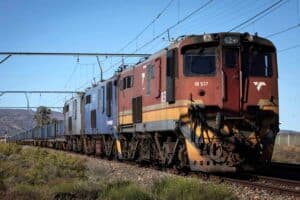Among others, Regiments Capital was paid 'R227 million from Transnet's pension fund for work the parastatal could do itself'.

State-owned enterprise (SOE) Transnet is still reeling from the effects of irregular transactions entered into by former executives with the Gupta-linked Regiments Capital and Trillian.
These companies fleeced Transnet of billions of rands in questionable projects, leaving the SOE in the red, the Commission of Inquiry into State Capture heard yesterday.
In wrapping up his testimony before Deputy Chief Justice Raymond Zondo, Transnet acting group CEO Mohammed Mahomedy traced the current state of the company’s poor balance sheet to erratic decisions taken during the tenure of former executives Brian Molefe, Anoj Singh, Garry Pita and Edward Thomas.
The first sign that raised a red flag about Transnet’s financial decline was when a consortium led by international consultancy firm McKinsey was brought on board to assist with a strategic and financial turnaround.
It ceded its brief as financial and strategic advisors to Regiments Capital, which later brought Trillian to take over the role – a development unheard of in state procurement processes.
This, said Mohamedy, did not go through any rigorous scrutiny by internal treasury structures.
According to Mahomedy, Regiments assumed a conflicted role of transaction advisor and executor and was paid R227 million for swapping interest rates in billion of rands worth of loans that involved the Transnet pension fund, Nedbank and the China Development Bank, among others.
Mahomedy said former Transnet group treasurer Phetolo Ramosebudi in December 2015 made a recommendation to acting group financial officer Pita, for financial institutions to make an early swap of interest rates from floating to fixed in the 15-year multibillion-rand transactions to fund the acquisition of the 1046-type locomotives.
Regiments was appointed to negotiate the transaction.
Said Mahomedy: “There was no justification for Regiments to have been contracted to do this interest rate swap because Transnet treasury had the capacity to do the work, which led to R227 million being paid to them out of the company’s pension fund.
“Besides, the swapping of the interest rates so early in a 15-year, long-term transaction, exposed Transnet to paying much higher terms than originally agreed.”
For more news your way, download The Citizen’s app for iOS and Android.






